A new era begins: The controversial end to Lowell’s selective admissions
On Feb. 9, the Board of Education (BOE) passed a resolution that permanently ended use of selective admissions for Lowell, citing concerns that the current admissions process upholds a “culture of white supremacy and racial abuse” towards Black and Latinx Lowell students. Instead of using grades and test scores as admission qualifications, Lowell will now use the ranked-choice lottery system that other San Francisco Unified School District (SFUSD) high schools use. The resolution will also create a Community Coalition comprised of Black students, parents, educators and other anti-racist community members to conduct an equity audit of Lowell and examine how to improve equity at all SFUSD schools. The resolution was co-authored by three BOE commissioners and both Student Delegates, and passed with a 5-2 vote.
Community responses to the passing of the resolution were mixed. Supporters of the resolution argue that implementation of lottery admissions is the first step towards improving racial equity in SFUSD and combating racism at Lowell. Others argue that lottery admissions will not necessarily increase diversity, and will weaken Lowell’s culture of academic rigor. Additionally, many people expressed frustration with the BOE’s decision making process.
The current resolution comes after the BOE’s decision in October 2020 to change Lowell’s selective admissions to a lottery system for the 2021-2022 school year, partially due to COVID-19 making it difficult to carry out selective admissions. According to BOE Commissioner and co-author of the resolution, Matt Alexander, the permanent end of selective admissions was spurred on by the recent racist incident at Lowell, where racial and antisemitic slurs and pornography were written on a Padlet intended for reflections about an anti-racism lesson. For many community members, the Padlet incident was symbolic of years of racism at Lowell.
By ending selective admissions, Alexander believes that the student body’s diversity will increase. He cited a study that shows that high performing public schools with a lottery component in their admissions tend to better reflect the diversity of their school districts. With an increase in diversity, Alexander believes a step will have been taken towards lessening racism at Lowell. “If you have more Black and Latinx students, it will be less likely that people of other races are going to be randomly racist because someone’s more likely to check them on it,” he said. Senior Owen Park agrees that the resolution will help address racism at Lowell. “This is a step in the right direction because they’re really trying to address the problem, and really trying to create an action plan that helps non-Asian people of color to be accepted at Lowell and be accepted into Lowell,” Park said.
This is a step in the right direction because they’re really trying to address the problem, and really trying to create an action plan that helps non-Asian people of color to be accepted at Lowell and be accepted into Lowell. — Owen Park
However, SFUSD’s lottery system has been criticized before for failing to improve diversity and equity, notably by the BOE itself. In October 2020, the BOE got rid of the lottery system for SFUSD elementary schools starting in the 2022-2023 school year, arguing that it increased inequity and did not produce greater diversity in schools. Tiffany Abuan, President of the Lowell Parent Teacher Student Association, is confused as to why the BOE is advocating for a system they called inequitable to improve equity at Lowell. “If the Board of Ed has found the lottery is problematic in elementary school, wouldn’t that be the case for middle school and high school?” she said.
Abuan believes that without an understanding of why Lowell is not currently diverse, the issue cannot be resolved. “I think it’s really important to look at why it is that people choose not to go to Lowell in order to understand who will end up going to Lowell and opting into that in the lottery,” she said.
Many community members also believe that the lottery system may not lead to increased diversity at Lowell. Terence Abad, Executive Director of the Lowell Alumni Association, believes that recent news about racism at Lowell could also turn away future students. ”With all the attention to racism at Lowell, how many Black kids are going to want to put down Lowell as their number one choice?” he said. “I can see a less ethnically diverse student body in the fall.”
Others cite the existing limitations of lottery system procedure and the current demographics of Lowell as reasons diversity may be hard to achieve. “We have a majority Asian and white makeup already,” junior Joanna Lam said. “That means if we open it up to lottery and people apply using sibling preference, we’re just going to get more students that are Asian and white.”
Abuan thinks that because of Lowell’s location on the Southern end of San Francisco, it is inaccessible to students that live far away from it, especially with public transportation facing looming budget cuts. Junior Jeremy Anderson agrees, believing that a big part of why Lowell’s student body is currently majority Asian is because of its location in the Sunset, a predominantly Asian neighborhood.
Some think that changing to lottery admissions could even backfire, exacerbating racism instead of being the first step towards combating it. Sophomore William Cao believes that people’s anger about the change to a lottery system would cause them to scapegoat the group they perceive to be responsible for it. Sophomore Aubrey Chikere agrees that some students may not react positively to the change. “A lot of students of different backgrounds are going to come in,” she said. “There’s maybe some students at Lowell that are not accustomed to that so they’re scared of what will happen.”
Although they believe increasing diversity at Lowell is necessary, other students like Cao believe that the focus should be on strengthening middle and elementary schools so that all students would be able to get into Lowell. Junior Maya Bhandari agrees, believing that the BOE is penalizing Lowell instead of focusing on larger inequities in the district. “Why are we bringing such a high achieving school to a lower level?” she said. “Why aren’t we bringing the lower level schools up to a higher level like Lowell?”
While various Lowell stakeholders have pointed out potential problems with the lottery system, others remain opposed to it. According to Abad, the Lowell Alumni Association received hundreds of emails from alumni stating that they do not support lottery admissions after the resolution was announced. Abad does not fully support lottery admissions, believing that “academic achievement or potential” should be a contributing factor in admissions because it curates an academically focused student body. “A big part of what makes Lowell such an amazing place for so many students is that you have brought together a community of kids who want to work hard and want to achieve and want to challenge themselves,” he said. A big part of what makes Lowell such an amazing place for so many students is that you have brought together a community of kids who want to work hard and want to achieve and want to challenge themselves. — Terence Abad
Some students believe that Lowell’s culture of academic excellence, which they believe is created by the selective admissions process, was a unique chance for disadvantaged students to get a rigorous education. “There’s a lot of kids who don’t come from rich families but they work really hard and they study hard and they get in that way,” Cao said. “They can’t go to private schools and their parents can’t send them to expensive programs.” Bhandari agrees. “Having Lowell as a magnet school has really provided a great education for so many children who would not have been able to get as high of a level of education compared to going to another high school,” she said.
Pro-lottery advocates like Lam and Anderson argue that Lowell’s academically rigorous education should be available to all students. Alexander agrees, and believes a system of lottery admissions would accomplish this. “Open access is really important. And I think the change would send a strong signal to everybody that that’s what Lowell is about; that Lowell is about excellence, but it’s about excellence for everybody,” he said.
Though the resolution has passed, many community members are critical of the process around its passage. Some believe that the BOE disregards feedback from the community. “Going to the meetings, it seems kind of one sided and they kind of have the decision made up before they even share the public comment,” Cao said. Abad agrees. “It doesn’t look like any of the public input on any of this stuff budges them in any way,” he said. Social studies teacher Monty Worth believes that the BOE has been trying to change Lowell’s admissions for a while, evidence that they had already made up their minds before hearing community voices. “In the fall, they used the excuse of the pandemic to rush through a change to admissions for one year,” he said. “Even then, it was clear that some members wanted it to be permanent. And now they’re using the excuse of racism as a way to change Lowell admissions even though it’s not clear that there’s such a link between the two.”
Some members of the BOE believe that they are listening to the Lowell community by listening to the voices of Black community members. Alexander questions how the people that feel unheard define the Lowell community. “If you define community as all the people that think a particular thing, then those people feel like they haven’t been consulted. If you talk to Black Lowell students and alumni, that community has felt like no one’s been listening to them for 50 years,” he said. Alexander also acknowledges that he can’t fulfill everyone’s desires. “As a board member, I have to make a decision,” he said. “Somebody is going to be happy and somebody’s gonna be mad. It’s impossible for me to listen to the Lowell community when the Lowell community is actually divided.”
Another critique was that the short time frame established by the BOE limited opportunities for community input. The BOE proposed the resolution on Jan. 30, and held a special meeting for public comment three days later on Feb. 2. The resolution was voted on at a meeting on Feb. 9, ten days after it was first announced. As future freshmen for the 2022-2023 school year do not begin the application process to Lowell for nearly another year, many people did not see a pressing reason to pass it now as opposed to in a few months. “I don’t get why it had to be pushed through so abruptly and with such limited public opportunity for input,” Abad said. “It makes people in the public feel like their voice doesn’t matter.”
However, Alexander believes it was necessary to vote on the resolution quickly to meet the needs of Black community members. According to Alexander, the BOE is following the lead of the San Francisco NAACP and other Black leaders, who have advocated for a change to lottery admissions. At the Feb. 9 meeting, several Black parents and leaders expressed thoughts that people in favor of selective admissions never believe that it is the right time to implement this change.
A petition titled “In Defense of Lowell” attempted to extend the timeline before the BOE voted. Worth wrote the petition to express his frustrations with the resolution, which states that Lowell’s current admissions has perpetuated “segregation and exclusion” and a “culture of white supremacy and racial abuse towards Black and Latinx students.” Worth believes that the resolution’s claims were blown out of proportion. “My goal was to say, ‘Look, whether you agree or disagree with changing Lowell’s admissions, this is not an accurate portrayal of Lowell,’” he said. The petition acknowledged the existence of racism at Lowell, but said that the BOE was “falling prey to stereotypes, hearsay, and wild exaggeration about Lowell.”
Chikere, a member of Lowell’s Black Student Union, felt hurt and invalidated by the petition’s message. “So y’all who agree with this are calling our real life experiences exaggerations?” she said. “To me, that’s totally disregarding our experiences at Lowell.” Some non-Black students agree with Chikere. “I think that the petition was extremely disrespectful and insulting to Black and Latinx students because the petition really undermined their stories and their point of view,” said Park.
Don’t just jump to ‘we’re indefinitely making it lottery,’ because they haven’t even seen how it works
— Maya Bhandari
Some have critiqued the BOE’s lack of research into the decision. Worth believes that the BOE should’ve consulted with merit-based schools that have previously switched to lottery systems. Others, like Abuan and Bhandari, thought the BOE should’ve waited to see the effects of their October decision before permanently changing Lowell admissions. “Don’t just jump to ‘we’re indefinitely making it lottery,’ because they haven’t even seen how it works,” Bhandari said.
Patrick Wolff, a parent of a Lowell freshman, organized SFUSD data from its annual Culture and Climate surveys with a group of Lowell parents to inform the BOE’s decision. Culture and Climate survey data is SFUSD’s way of measuring the environment at each school, so Wolff thought the BOE should be aware of it before voting on a resolution that cites Lowell’s selective admissions as a reason for fostering a racist culture and low diversity. “Our point is just policy should be informed by data,” Wolff said.
Despite people’s critiques about the process, the resolution passed, evoking many questions about Lowell’s future. Alexander thinks the change to lottery admissions is a challenge to Lowell to figure out its true purpose and identity as a school. “In some ways, I think Lowell has been relying on the test too much to say, ‘Well, we don’t have to really worry about being a great school because we know that everybody had to pass the test to get in,’” he said.
Some believe that Lowell’s academics will suffer as a consequence. Abad believes that the academically focused student body could potentially be diluted and that there may be fewer academic opportunities at Lowell, since the demand for certain AP courses may decrease. Bhandari thinks Lowell’s quality of education will slowly degrade because teachers will need to change their teaching styles to accommodate new students, which she believes could lead to some teachers leaving Lowell. Under The Lowell’s Instagram post about the transition to lottery admissions, many students attributed Lowell’s academic culture to the students’ drive and motivation, which some believe will lessen under lottery admissions. “The only thing different about Lowell was the people who got in wanted to try and compete to stand out,” sophomore Daniil Kardava wrote. “It was never about being smarter or elitism, it was just surrounding yourself with a community of people who cared.”
Others disagree, believing that Lowell’s quality of education lies in its vast selection of courses. Anderson thinks Lowell’s course offerings will stay the same, and students will still be able to challenge themselves with academically rigorous course loads. “If you want to take four APs, take four APs. Lowell still lets you do that,” he said. No matter who walks through those doors, it’s our job as students to set the culture and make sure that we’re welcoming them no matter what. — Joanna Lam
Many people think that the change to a lottery system is just a jumping board for more active anti-racist work in the future. “Now’s the time to get to it,” Lam said. “Now’s the time to peel it all back. Let’s talk about the racism.” Chikere also believes that there is more work to be done, advocating for more anti-racist education and making it clear to students that racism is not tolerated at Lowell. Many think the Lowell community needs to be assertive in rejecting racism at Lowell for the culture to truly change.
Regardless of their viewpoint on lottery admissions, many community members hope that all future students will feel included and valued at Lowell. “Whatever Lowell ends up looking like admissions wise, I want every kid in the city who wants to come to Lowell to feel that they will be welcomed and it will be a supportive atmosphere,” Abad said. Some students believe they have a personal responsibility to support their future peers. “No matter who walks through those doors, it’s our job as students to set the culture and make sure that we’re welcoming them no matter what,” Lam said.
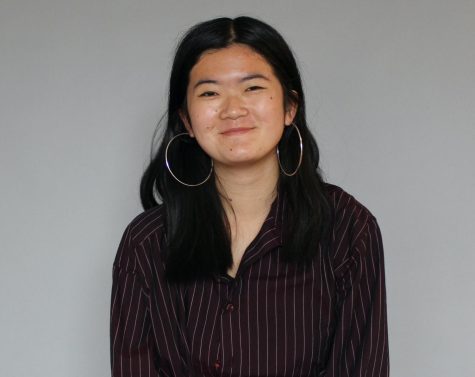



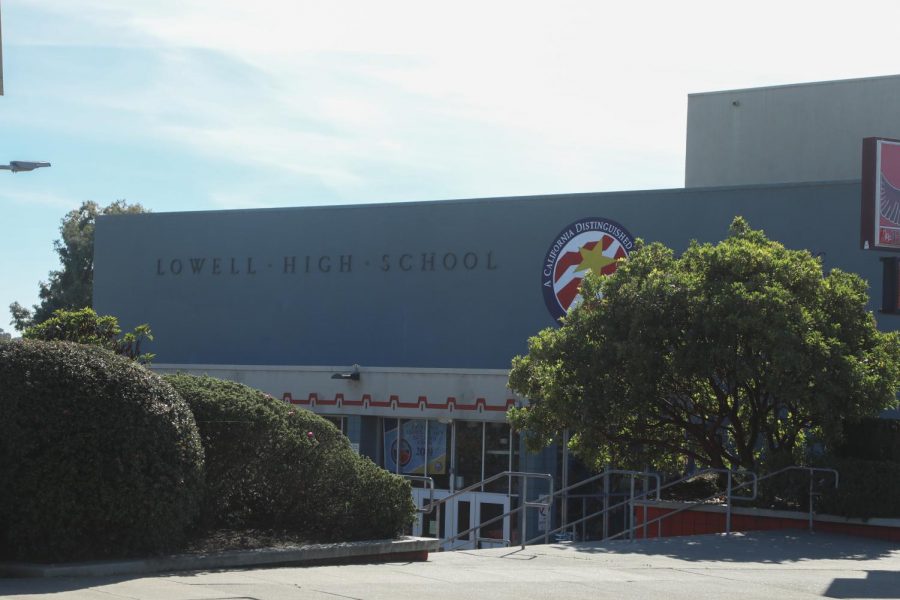

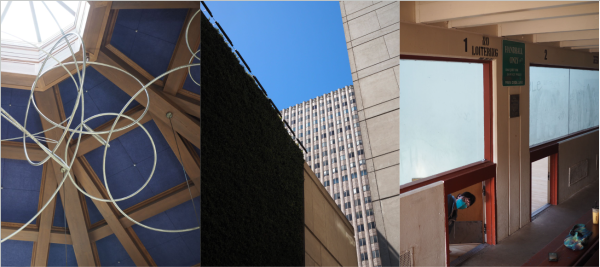


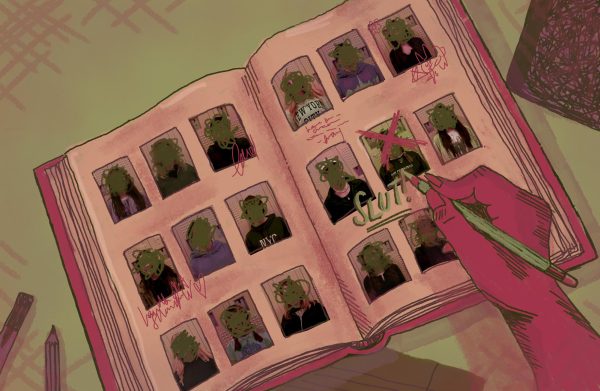
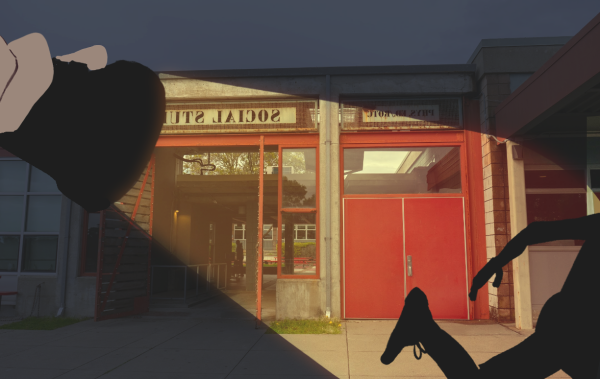
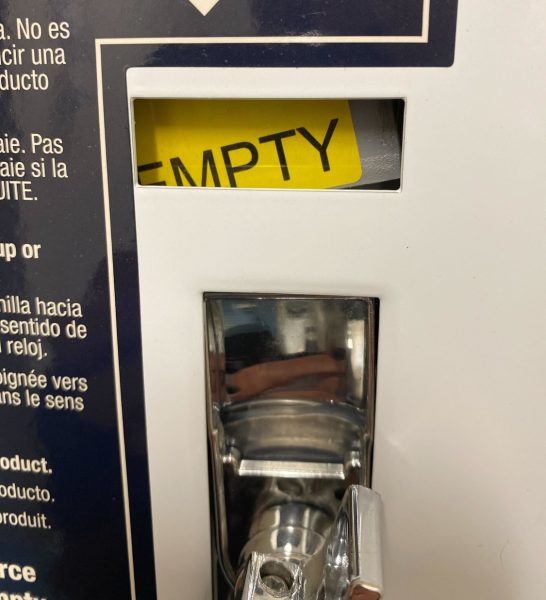
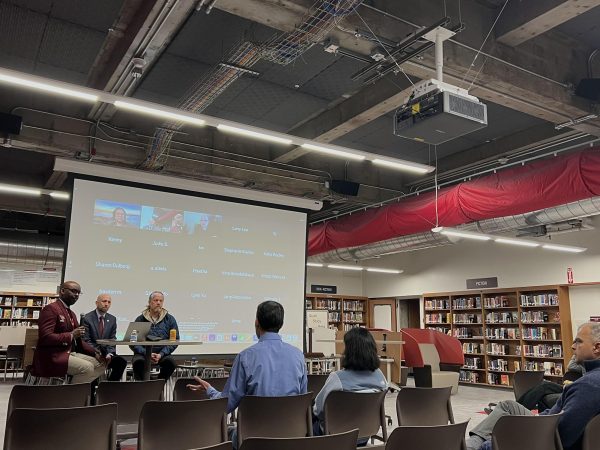
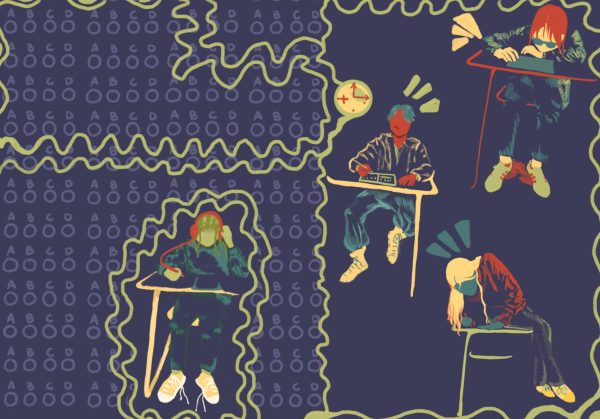
ANDREW TANG • May 3, 2021 at 3:02 pm
The United States already has a reputation abroad for having a poor public school system. Now the public school system is being even more dumbed down. Alison Collins and Gabriella Lopez are against grades and test scores. Those are the main ways you measure performance. That is much of the point of school. The SFUSD Board of Education is enhancing negative American steretypes with their childishness and racist Black Lives Matter extremist-inspired behavior.
Justin Van Zandt • Feb 27, 2021 at 10:08 am
Lowell has always been open to any child who puts in the workto get in. If you study American culture, most kids don’t spend enough hours reading, studying, memorizing, doing workbooks, going to the free public library. Every child who hasn’t gotten in had a choice to say no to TV, hanging out, video games, social media and other things that are more immediately fun but less fulfilling. The answer should have been to provide tutors to all poor kids, motivate all kids to study lo ger by showing them the proven results of poverty to high income from children of immigrants of all races by longer study hours of 10,000 above average over a childhood, and encouraging all kids to be obsessed with proving their content of character by out hustling the kids who are thriving. You need equal childhood behavior to achieve equal adult results. Equality not equity should be the goal. No one didn’t get in and had no chance. That’s a myth. The best predictor of future behavior is past behavior. It used to require admirable and diligent and arduous childhood behavior to get in. Now it requires luck. You can’t decide you want your kid to get in and organize their life around sacrifice and hard work and achievement anymore. Until the board is recalled, sfusd will lose thousands of students and teachers will be laid off. Lowell was a reason many struggled to work extra jobs to afford to live here and convinced their kids to sacrifice also to prove their moral character. This will drastically lower middle school test scores as kids won’t be as pressured to push themselves to maximum sacrifice and performance in elementary and middle school and will spend more time on self destructive habits like tv,video games and social media instead of reading, workbooks, flashcards, grammar study, etc. Lowell has always caused hard work in the preteen years which pays off in adult income. This represents the inevitable conclusion of give every kid a trophy culture. This is sad for sfusd. Recall the board asap.